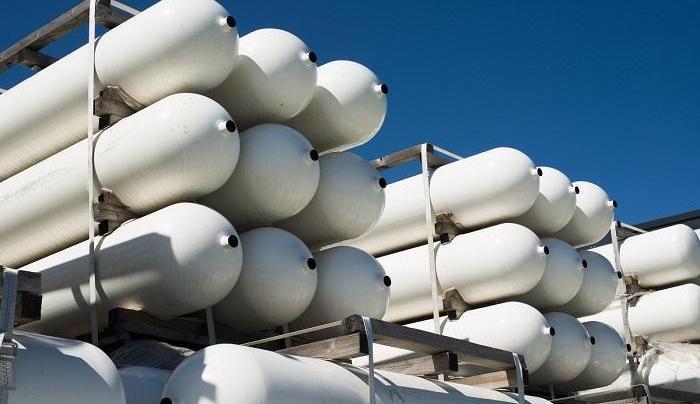Not deterred by the incessant outbreaks of gas explosions and their attendant mass destruction of life and property, more gas plants and stations have continued to spring up in densely-populated areas in the nation’s major cities.
Since the Liquified Petroleum Gas (LPG) took over from kerosene and firewood as the major source of domestic energy, many Nigerians and their foreign partners, are investing heavily in gas plants and stations.
And because of its high demand as a clean source of energy, a lot of citizens have adopted it for domestic use.
Against this backdrop, large and small-scale enterprises have set up retail stations and processing plants often ignoring safety measures.
Regrettably, in our opinion, this is done without adherence to safety standards to the extent that even the right-of-way in major roads in towns and cities are encroached upon with such facilities.
In extreme cases, the operators have established gas retailing units in places designated for residency, and refill facilities in shops, shopping malls and markets.
In their desperation for quick gains, landlords have joined the fray, renting out their buildings as well as selling lands in unauthorised places for gas plants and stations.
Their operators, who have thrown decency to the wind, have set up the facilities in houses, to attract more patronage.
Surprisingly, the residents of such endangered places have carried on carelessly as if their lives do not count or threatened by such installations.
The trend has equally extended to petrol stations’ owners – whether major or minor – who divide their outfits to accommodate both fuel and gas refilling stations.
All these are done in total breach of the guidelines for setting up the outlets by the Nigerian Upstream Petroleum Regulatory Commission (NUPRC) and Standard Organisation of Nigeria (SON), the industry regulators.
The guidelines were issued pursuant to the Petroleum Act 1969, Mineral Oils (Safety) Regulations 1997 and the Petroleum Regulations Act 1967. They stipulate that the stations and plants should be located in a secure land and in an appropriate zone.
The guidelines further provide that the land should be “large enough to accommodate the LPG storage vessels, filling area, and other necessary facilities.”
Furthermore, the operators are required to obtain licenses from the Nigerian Midstream and Downstream Petroleum Regulatory Authority (NMDPRA) with “adequate consideration for safety, community engagement and town planning approval.”
If the guidelines are so stringent and all-encompassing, why do we still have refilling outlets and plants for this highly inflammable and dangerous product sold in high-density areas, even in state capitals and major towns across the country?
A mention of a few cases of the occurrence of the disasters associated with the unguarded sale of gas in populated locations will suffice: On March 15, 2020, 17 people died when a truck hit a processing plant in Abule-Ado area of Lagos State with 100 houses burnt. In the same Lagos, two people died on October 9, 2020, in a gas explosion at a shop in Baruwa, Iyana Ipaja area.
Outside Lagos, 18 people were injured on January 4, 2025 in Port Harcourt, Rivers State from a gas explosion at a refilling shop.
There are other several cases, some of them more devasting across the length and breadth of the country.
In our opinion as a newspaper, the surge in gas explosions nationwide is not due to lack of adequate guidelines, but the failure of the regulatory authorities to enforce them.
It is this complicity of the officials vested with such powers that has emboldened those involved to continue in the indiscriminate citing of gas plants and stations in regulated areas.
We also believe that the states and local government authorities, which are closer to the grassroots, are not doing enough to tackle this menace.
If we may ask: Why should a local government official collect revenue from gas refilling shops in a residential area when they should be shut down?
To check this menace, we call for mass public enlightenment of Nigerians on the dangers of citing, operating and living in an area close to a gas shop/plant.
Community leaders should rise to this challenge by preventing and reporting owners of such facilities to the law enforcement agents and the appropriate authorities for the immediate closure of such stations and plants.
The regulators should live up to their responsibilities, knowing that the precious lives of Nigerians and their hard-earned property are at stake.
Henceforth, any official or institution, which fails to deliver on their constitutional mandate should be held accountable and prosecuted accordingly to serve as a deterrent to others.
The regulators should frequently deploy their over sight functions to the field for the monitoring and supervision of the operators.
There is also need for the revisiting of the laws regulating the sector as some provisions are out of tune with current realities.
The punishment for breach of the provisions on locating a station or plant in a high-density area should be made tougher than they presently are.





